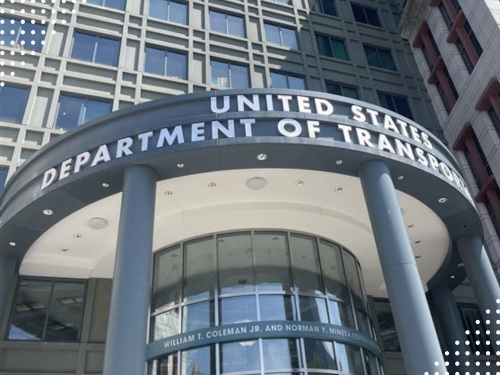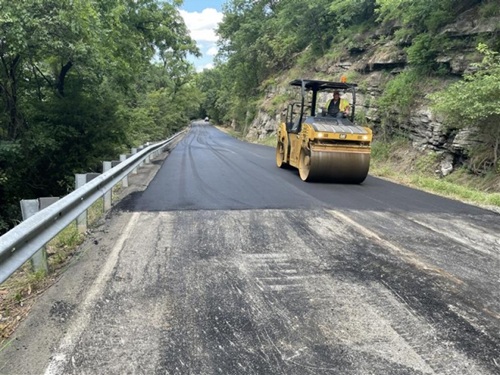The U.S. Department of Transportation recently issued more than $1 billion in “Safe Streets and Roads for All” or SS4A program grants to 354 local, regional, and tribal communities to improve safety on rural and urban roads across the country.
[Above photo by USDOT]
The SS4A program – a key component of USDOT’s National Roadway Safety Strategy launched two years ago – provides grants directly to communities for implementation, planning, and demonstration projects aimed at preventing deaths and serious injuries on the nation’s roadways. Since launching in 2022, USDOT said the SS4A initiative has funded projects in more than 1,400 communities, supporting roadway safety for nearly 75 percent of the U.S. population.

The agency released its latest SS4A discretionary funding award notice in tandem with the most recent traffic fatality estimates compiled by the National Highway Traffic Safety Administration for the first half of 2024. NHTSA said an estimated 18,720 people died in motor vehicle traffic crashes in the first half of this year, a decrease of about 3.2 percent as compared to 19,330 fatalities in the first half of 2023, with fatalities declining in both the first and second quarters of 2024.
“Through new funding programs like Safe Streets and Roads for All, the Biden-Harris Administration is helping communities of all sizes make their roadways safer for everyone who uses them,” said U.S. Transportation Secretary Pete Buttigieg. “We should be energized by the fact that together we’ve reduced traffic fatalities for more than two years in a row now,” noted Pete Buttigieg, USDOT secretary, in a statement.
“But so much work remains to fully address the crisis on our roads,” he added. “[These] roadway safety grants will continue the important work we’re doing to reduce traffic fatalities to the only number that’s acceptable: zero.”
State departments of transportation are also working to provide more support for local projects, especially ones focused on improving roadway safety.
For example, the Massachusetts Department of Transportation recently issued $6.5 million to 28 municipalities and two Regional Transit Authorities as part of its “Shared Streets and Spaces” program.

That program provides funding to help cities and towns statewide design and implement projects to improve plazas, sidewalks, curbs, streets, bus stops, parking areas, and other public spaces in support of public health, safe mobility, and strengthened commerce.
“These grant awards will advance projects to help support safe travel for everyone, whether they are on foot, bike, transit, or in an automobile and strengthen our municipalities across the state,” noted Monica Tibbits-Nutt, MassDOT’s secretary and CEO, in a statement.
And the Kansas Department of Transportation recently issued a combined $26 million to 33 projects to improve intersections and roads in cities statewide via its City Connecting Link Improvement Program or CCLIP.
Under the CCLIP, the agency said cities must contribute up to 25 percent of the project cost based on its population, though some cities contribute significantly more. However, cities with a population under 2,500 aren’t required to provide a match, Kansas DOT noted.
“By investing with our local partners in our infrastructure framework, we are delivering economic opportunities across rural and urban parts of the state,” said Kansas DOT Secretary Calvin Reed in a statement. “These projects will address problems, so Kansans have more local transportation choices.”
 Nation
Nation


